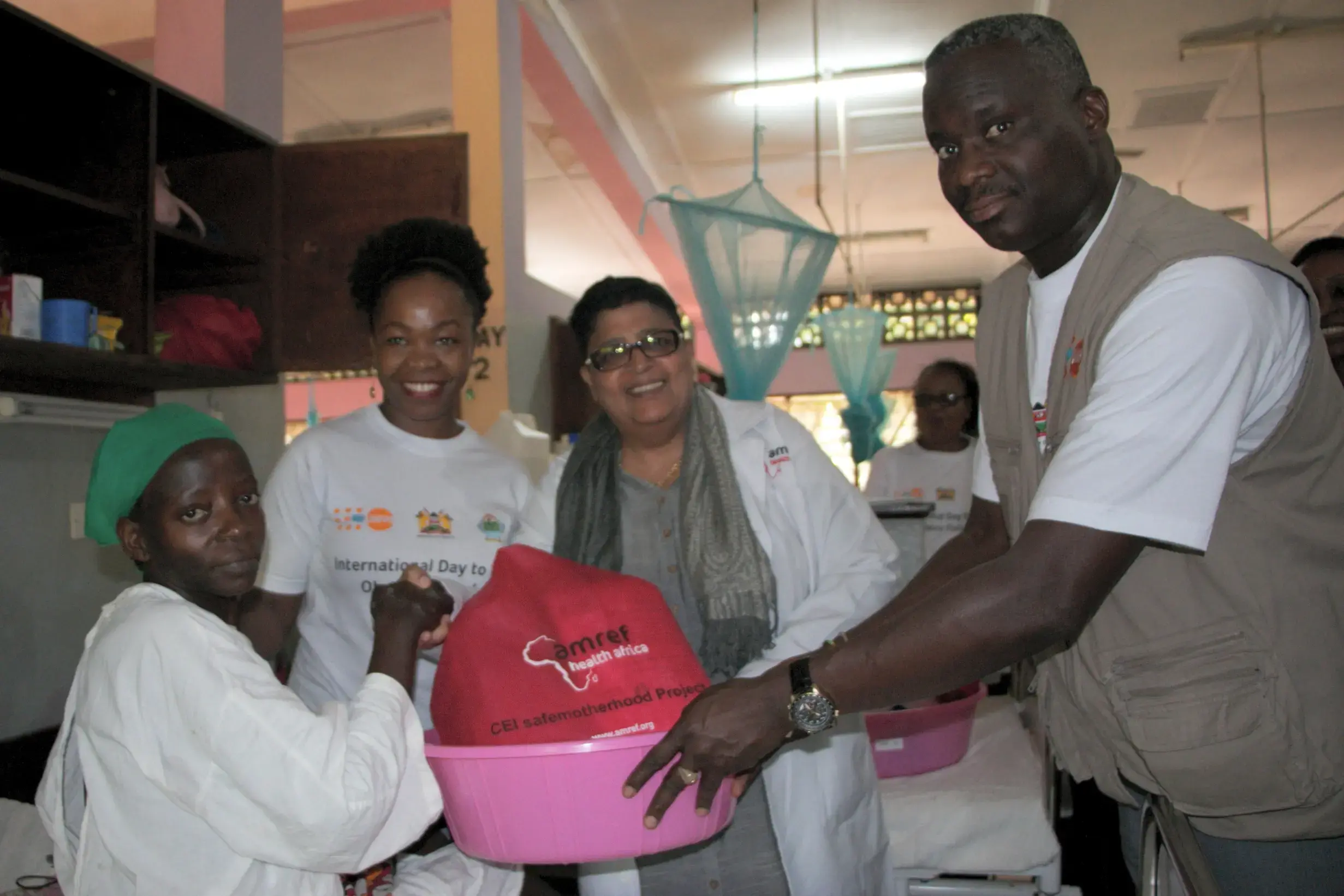Did you know that more than two million women still live with obstetric fistula, and 50,000 to 100,000 develop fistula every year!
Obstetric fistula is a hole between the birth canal and bladder or rectum that is usually caused by prolonged obstructed labour. It is both preventable and treatable, but fistula plagues the lives of thousands of women in Kenya every year, leaving them incontinent for urine and/or stool.
Ending fistula is a high priority for UNFPA, the United Nations Population Fund, and it is a key step on the road to achieving the world’s Sustainable Development Goals by 2030.
One of the ways UNFPA is addressing fistula is through investing in the training of nurses on emergency obstetric and newborn care as well as pre-intra and post-operative care of fistula patients. Christine Muthengi is one such trained nurse who is making a difference in ending fistula in Kenya. Here is her story, in her own words:
My name is Christine Muthengi. I retired recently from Kenyatta National Hospital where I worked for 35 years as a nurse, midwife, counsellor, researcher and trainer in the reproductive health unit.
I started working with obstetric fistula patients in 1996. My interest was to encourage, counsel and educate them, and keenly following up after the surgery. As a result, I acquired skills and a wealth of experience dealing with fistula cases. Through this, I have trained over 2,000 nurses and hos
pital personnel countrywide on how to manage fistula patients. In fact, 1998, I was recognised as the Nurse of the Year in Kenya.
I am currently working in partnership with various organisations such as the United Nations Population Fund (UNFPA), Flying Doctors of Africa, Freedom from Fistula Foundation and Amref Health Africa where I offer my expertise to help fistula patients across the country. These organisations are at the forefront supporting the campaign to end fistula in Kenya through awareness creation and facilitating repair surgery of fistula patients.
Ending fistula in Kenya is my passion and mission. There is nothing that gives me greater joy than to see patients returning to their communities with joy, health and above all, restored dignity.
Working with partners in the Campaign to End Fistula, UNFPA has made progress towards eliminating fistula through prevention, treatment and social reintegration. As a result, UNFPA has supported more than 85,000 fistula repair surgeries since 2003, and more than 15,000 cases in 2016 alone.
In Kenya, UNFPA is strengthening the health system of county governments by procuring maternal health equipment for both basic and comprehensive obstetric care, including equipment for fistula repair. Nurses are being trained in screening fistula patients and making the correct diagnosis as well as emergency obstetric care. Additionally, community health workers are also being trained in identification of fistula patients and community sensitization and acting as key architects in reintegration of fistula survivors within the community.



